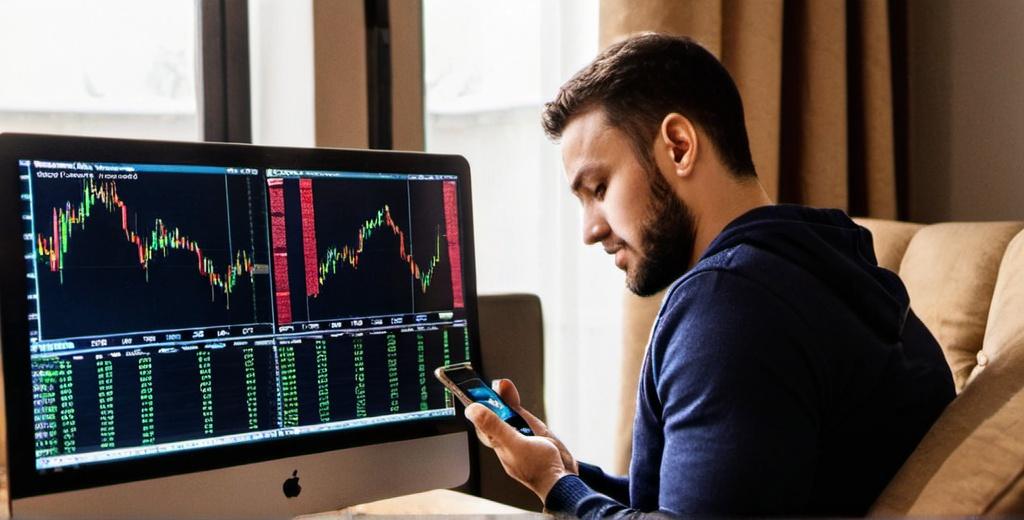South Africa has quickly become one of the most active hubs for retail trading in Africa. Whether it’s forex, CFDs, or stocks, more people are getting involved—and fast. That surge means one thing: the number of brokers is growing just as quickly, and not all of them are legit. If you’re trying to find a broker in South Africa, the options can feel overwhelming. Local? Offshore? FSCA regulated? MT4 or mobile-only? Hidden fees? It’s a lot.
Let’s cut through the noise.
South African traders are in a unique spot. The country has a solid regulatory structure, growing internet penetration, and a market that’s mature enough to offer global access but still flexible enough to serve smaller account holders. But the difference between a good broker and a bad one isn’t small—it’s the difference between a profitable, smooth trading experience and a complete headache.
Tools like sttsoftware.co.za make this process simpler by helping traders filter through broker options with relevant details on platform features, support, regulation, and reputation.

Start with Regulation: Why FSCA Matters
The Financial Sector Conduct Authority (FSCA) is South Africa’s financial regulator. A broker licensed with the FSCA is legally allowed to offer financial services to South African residents and is held to standards around transparency, client fund protection, and fair dealing.
If a broker doesn’t list their FSCA number or it seems sketchy, that’s a red flag. Too many offshore platforms pose as local-friendly but operate in legal grey zones. When something goes wrong—like frozen withdrawals or dodgy pricing—there’s little recourse.
That said, some traders still use offshore brokers for higher leverage or broader asset lists. That’s fine, as long as you understand the trade-off: more flexibility, less protection.
Local vs. Offshore Brokers
There are pros and cons to each:
- Local brokers (FSCA-regulated):
- ZAR accounts (no currency conversion losses)
- Easier deposit/withdrawal methods via local banks
- SA-based customer support
- Lower leverage due to regulation
- Offshore brokers (unregulated or foreign-regulated):
- Higher leverage, more trading instruments
- Crypto deposits often accepted
- Risk of poor service, lack of oversight
- Potential withdrawal issues
Most experienced traders in South Africa use a combination. They’ll keep a primary account with a local broker for peace of mind and experiment with smaller deposits at offshore platforms for specific strategies.
What to Actually Look For in a Broker
The best broker for someone else isn’t always the best one for you. But a few things are non-negotiable:
- Fast, local deposit and withdrawal options
If it takes five days to get your funds—or if you can only use crypto to withdraw—that’s a problem. - Transparent fee structure
Check spreads, commissions, inactivity fees, and currency conversion costs. - Solid customer support
You want answers when things go sideways, preferably from someone who understands South African banking and regulations. - Reliable platform access
Whether it’s MetaTrader 4, a mobile app, or a browser-based setup, it should be stable, fast, and free of weird delays or pricing errors. - Account flexibility
Look for micro or cent accounts if you’re starting small. Some brokers offer ZAR-based accounts to avoid unnecessary currency conversion fees.
If you’re overwhelmed with options or unsure where to begin, brokerlistings.com can help you compare brokers side-by-side, check who’s licensed, and filter based on what matters—like ZAR accounts, mobile apps, or leverage limits.
ZAR Accounts: Why They Matter
Trading with a broker that offers ZAR-denominated accounts is a huge plus. It avoids unnecessary conversion costs when funding in rand and lets you withdraw profits directly into a South African bank account without extra steps or fees. It also simplifies tax reporting—because yes, SARS does care if you’re turning a side hustle into real income.
Popular Broker Features in South Africa
South African traders tend to favor brokers that offer:
- High leverage (if going offshore)
- Copy trading or social trading tools
- Mobile-first platforms
- Bonus offers (watch out for strings attached)
- Tight spreads on USD/ZAR and EUR/USD
- Access to commodities, indices, and crypto
That said, don’t pick a broker just because of a bonus. Those offers are often bait with heavy withdrawal restrictions. Look deeper into the actual platform stability and reputation.
Avoiding the Common Mistakes
- Signing up with a broker based solely on ads or influencer hype
- Not checking withdrawal options before funding the account
- Using maximum leverage without understanding how margin works
- Ignoring regulation status and trusting reviews without vetting
Always do a background check. Read the terms, test their support team, and use a demo account before going live. And if something sounds too good to be true—90% win rates, guaranteed profits, risk-free trades—it is.
Final Word
Finding a good broker in South Africa isn’t about picking the one with the flashiest app or the highest leverage. It’s about stability, trust, and access. You want a platform that works when the market’s moving fast, lets you withdraw when you need your money, and isn’t hiding fees in fine print.
